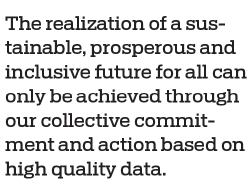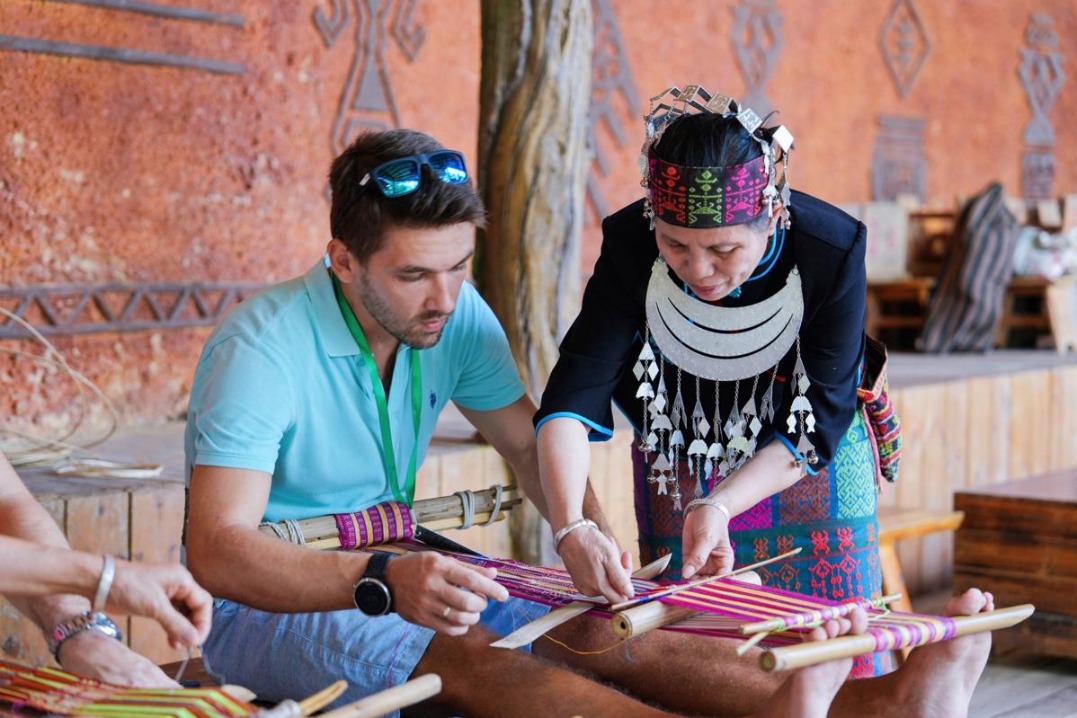No one in Asia-Pacific should be left behind






Based on the current rate of progress in Asia and the Pacific, the Sustainable Development Goals will only be achieved by 2062 — a sobering reminder of how much work remains. Women and girls continue to face discrimination in accessing basic needs, and men face health and personal safety challenges which will need to be urgently addressed so everyone can meet the SDGs.
Our Asia and the Pacific SDG Progress Report 2024 shows that while the Goals are meant to be universal, their implementation varies significantly across different segments of the population. Factors such as sex, age and location contribute to existing inequalities and sometimes exacerbate them. Women and girls often face discrimination in accessing education and employment opportunities while men suffer from higher rates of intentional homicide, suicide and road traffic deaths. These analyses reaffirm the need for granular data to better understand how different population groups are affected and how these lead to unequal outcomes. Governments can act upon these data insights to formulate policies which target the causes of inequality.
Data gaps hinder progress assessment
However, half of the SDG indicators do not have sufficient data to properly assess their progress. Gender equality (Goal 5) and peace, justice, and strong institutions (Goal 16) continue to be the Goals with the least data. Filling the data gaps requires more investment in data systems, as well as better coordination for effective data sharing and increased use of the data within countries and by international partners. We see positive developments in North and Central Asia, where Kazakhstan, Kyrgyzstan, Turkmenistan and Uzbekistan have partnered with the United Nations to upgrade their national statistical systems to better support stateless populations. Initiatives such as universal registration, mapping of statelessness and improved domestic legal frameworks contributed to the movement to end statelessness in these countries.
There is some good news despite the average regional progress towards achieving all SDGs standing at 17 percent. Even though progress in the region is significantly behind schedule, the vision set out in the 2030 Agenda for Sustainable Development remains as relevant today as it was in 2015. Countries in the region remain committed to the SDGs, as demonstrated by their voluntary national reviews (VNR). The VNR process provides an opportunity for countries to take stock of progress in implementation, share experiences and strengthen policies for accelerating SDG achievement. In 2023, we saw an increased use of SDG indicators in these VNR reports, which highlights an increased commitment by countries to evidence-based SDG reporting, including through the implementation of our National SDG Tracker.
SIDS have made much slower progress towards the SDGs
Stepping up climate action is an immediate priority, and we need to strengthen our capacity to address climate-related hazards and natural disasters. This is of particular importance to small island developing States (SIDS), which stood out as the most in need of support. In the Pacific, we see examples of how enhanced data availability has informed environmental decisions. The establishment of national environmental portals contributed to improved monitoring of environmental policies and better management of conservation projects in countries such as Tonga, Tuvalu and Vanuatu. In the Maldives, coastal biodiversity conservation offers a powerful means to combat the threats posed by climate change while contributing towards several SDGs at the same time. Integrating robust climate action measures into national policies, strategies and plans is of paramount importance.
Despite this challenging landscape, we see countries and stakeholders stepping up to make steps towards achieving the 2030 Agenda. These initiatives can be transformative if they are sustained and scaled up. In essence, we need to continue advocating for data-informed decisions to be at the core of our actions for the SDGs. The realization of a sustainable, prosperous and inclusive future for all can only be achieved through our collective commitment and action based on high quality data.

Rachael Beaven is director of Statistics Division, Economic and Social Commission for Asia and the Pacific (ESCAP), Arman Bidarbakht Nia is head of Statistical Data Management Unit, Statistics Division, ESCAP. Dayyan Shayani is a Statistician with ESCAP. Patricia Wong Bi Yi is an associate statistician, with ESCAP.
The views don't necessarily represent those of China Daily.
If you have a specific expertise, or would like to share your thought about our stories, then send us your writings at opinion@chinadaily.com.cn, and comment@chinadaily.com.cn.






























